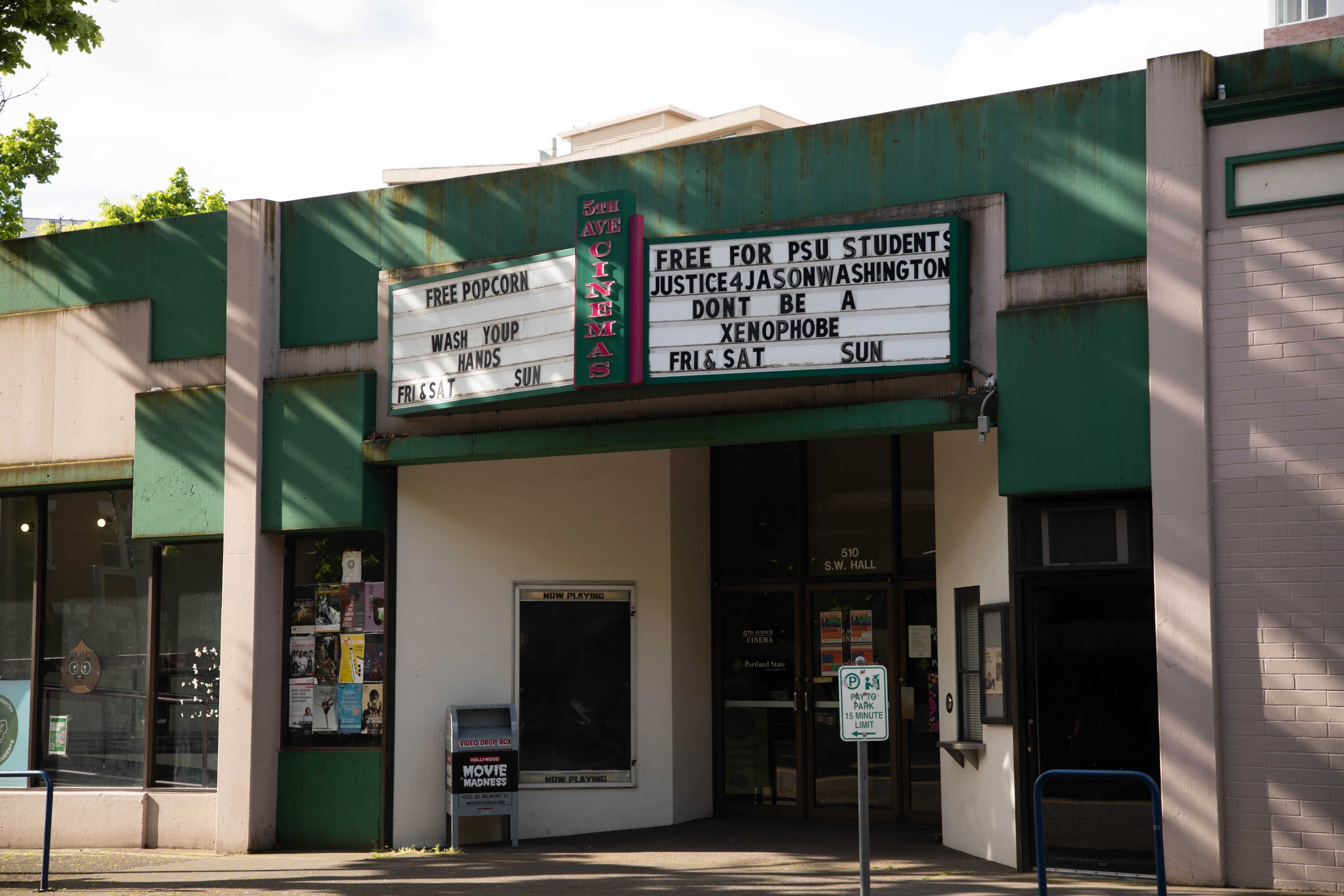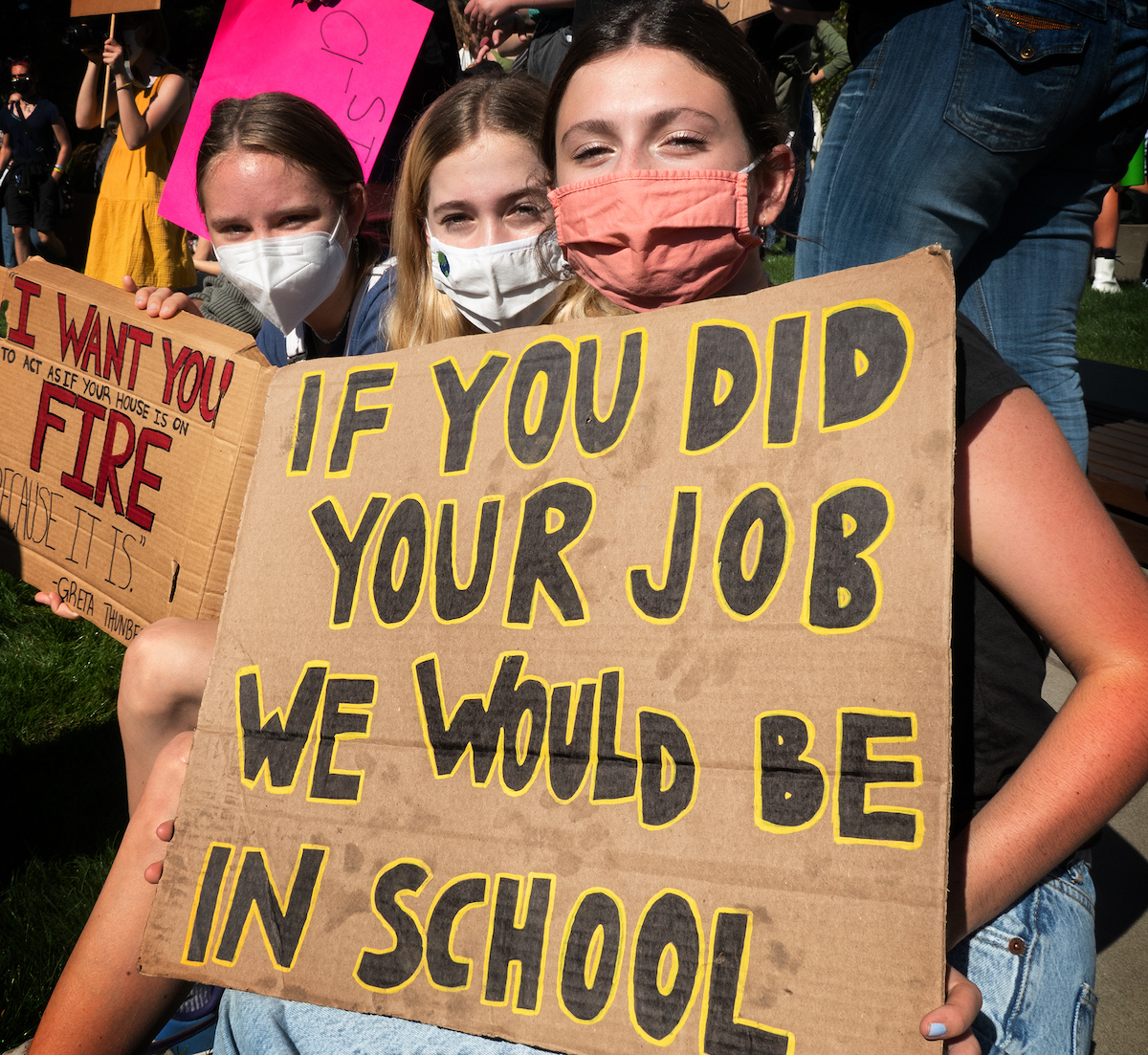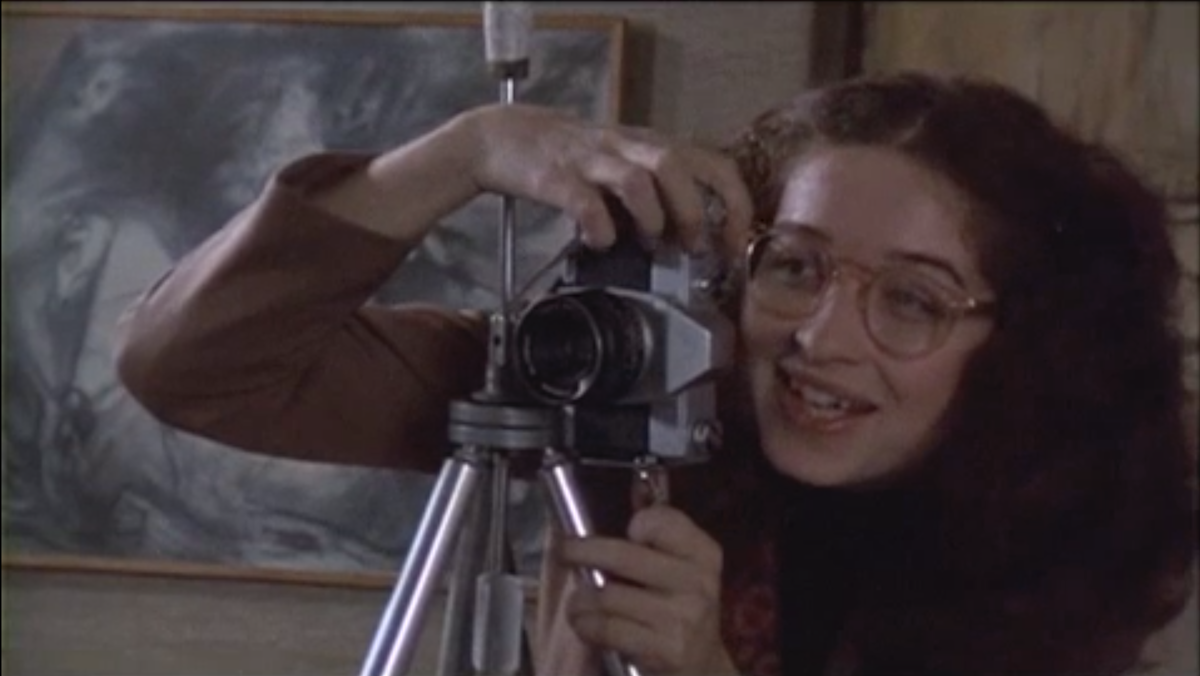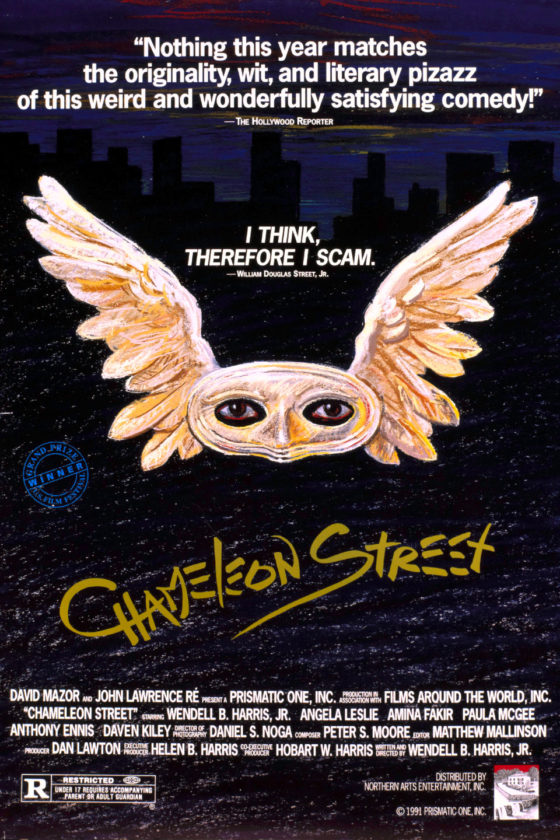5th Avenue Cinema is opening their doors once again to students after an 18-month hiatus. Although their reopening signals a return to campus-wide normalcy for Portland State students, the cinema is preparing to size up against complications and concerns of a continuing pandemic.
“We’ve been very cautious about the rising concerns, especially considering that we are not only a public theater but also one who serves concessions and beverages,” said Owen Peterson, 5th Avenue’s Cinema Coordinator. “In order to keep the experience as safe as possible for us and our patrons, we’re asking that people show proof of vaccination upon their arrival, wear masks anywhere and anytime they are not eating or drinking, and are also operating at [three-fourths] capacity (75 people per screening instead of 100) in order to assure distance amongst all patrons.”
When 5th Avenue reopened in 1989 after being bought out by Portland State, the PSU Film Committee was formed to take the helm of the theater. Ever since then, the cinema—which is the only student-run theater in the state—has been running non-profit, with all showings free to PSU students, faculty, staff and alumni, and tickets for other audience members costing only $4 or $5. The cinema will remain free for students following its recent reopening. Because PSU is currently mandating vaccinations for students who wish to be on campus, the cinema is accepting valid student IDs as proof of vaccination.
The cinema’s facility, which is located at SW 5th and Hall on campus, is also used for other on-campus events. Lectures are frequently held inside the cinema’s two screening rooms, which will be resuming this term as well; and, during the pandemic, the cinema was home to the PSU Food Pantry, which has now relocated to their former location in the Smith Memorial Student Union basement.
“As for what services will occupy the space in the future aside from our own, we mainly will just work on rolling out our private [screening] rental services again in the winter, given that the pandemic doesn’t get worse,” Peterson said. “We hope to work on more collaborations with PSU organizations and clubs to facilitate guest speakers, film-related discussions and potentially a film festival.”
Even during the cinema’s year-and-a-half closure, its five-student team kept busy by continuing to curate a 10-week selection of films available on streaming platforms for each term and hosting a discussion podcast for each film as a stand-in for in-person screenings.
“[The podcast] was a good way to connect the staff on a personal level, because we were essentially just sharing our opinions on movies we were showing, and riffing off of each other for 45 minutes to an hour,” Peterson said. “Unfortunately, it is just too time-consuming for our in-person workflow, so we’re pivoting to a new, shorter form of content for fall that is more visual than it is audible.”
One of the most notable and remarkable aspects of 5th Avenue is its support of 35mm screenings, a rare gem in the age of digital filmgoing. Alongside theaters like the Academy Theater or the historical Hollywood Theatre, 5th Avenue Cinema is one of the few theaters in the entire state to project films on 35mm and occasionally 16mm film. 35mm screenings made up the bulk of 5th Avenue’s pre-COVID-19 screenings, with 2019 alone hosting celluloid screenings of classics like Harakiri, Eraserhead, Woman in the Dunes and Y Tu Mamá También. In stark comparison, this fall’s program contains only three 35mm screenings, although the reasoning behind this decision has been heavily influenced by the pandemic.
“[The pandemic] has certainly influenced which films and which formats distributors are willing to loan out right now,” said Genevieve Hunsaker, one of the cinema’s two projectionists. “As much as we’d love to have all of our screening on 35mm film, distributors are being rightfully cautious with sending out film reels, so we’ve had to make some adjustments and add more digital programming for now.”
Additionally, both of the cinema’s projectionists who had been at 5th Avenue prior to the pandemic have since left, and the closure of the theater made it a challenge to train the new projectionists in their trade.
“We’ve been fortunate enough to be able to train during the pandemic,” Hunsaker said. “Though it was not very regular up until we were preparing for our first screening, we were lucky enough to still get in the projection booth and get hands-on experience with the projectors. In the beginning of my training, we tried to do it virtually, but quickly found out that was not as beneficial as being in-person and being able to closely see what is happening in the projector.”
“Emerging from a total lock-down has definitely been a strange transition for the whole staff at 5th Avenue,” said Cadie Godula, the cinema’s other projectionist. “For me, I never got to formally meet anybody from the former staff, so it feels like we’re really starting from scratch on how to operate the theater as of right now. As far as learning about projecting film, Genevieve and I have been able to train with Joel Miller [of Northwest Projection and Sound] who’s super knowledgeable in projecting film and [Digital Cinema Package], so I’m feeling more and more confident in the booth.”
Because physical film has to be handled at more times and by more people than digital formats, many cinematheques and productions have de-emphasized screening and shooting on film amidst the pandemic due to safety concerns (for instance, The Walking Dead switched from 16mm film stock to digital footage for their penultimate season).
“The main [challenge] is the difficulty we’ve had in renting the films we want to show because of damaged relationships with key distributors who we rent a lot of our films from,” Peterson said.
“We’ve probably had to change our program 10+ times from our original draft because we can’t get the medium we want or the prints are missing/unavailable from the only distributors in the US.”
Despite the difficulties in renting films from distributors, 5th Avenue’s fall program remains just as impressive as programs in previous years. Although two special screenings of Mean Girls on 35mm were shown on Friday, Sept. 24 to celebrate the reopening of the cinema, the fall program will officially start on Oct. 1, with one film being shown every week at 7 p.m. and 9:30 p.m. on Fridays and Saturdays respectively, and 3 p.m. on Sundays. This term’s inaugural film is Mala Noche, the Portland-set directorial debut of celebrated Portland director Gus Van Sant (My Own Private Idaho) and a landmark film of independent LGBTQ+ filmmaking.
5th Avenue also has a reputation for the extreme diversity of the films they’ve screened, both in origin, subject matter and genre. A wonderful demonstration of this is the inclusion of films like Animal House, Miranda July’s Me and You and Everyone We Know and Twilight in this term’s selection, with the latter two even being some of the few 35mm screenings this term.
“I remember so clearly my experience growing during the whole Twilight moment, and how much hate it all received,” said Publicity Coordinator Andi Johnson, who programmed the film. “The idea of revisiting the film on the big screen is so exciting to me. We are planning on doing a fun little ‘outfit of the weekend’ competition.”
“I’m really excited for one of my picks, You and Me and Everyone We Know since we were able to get it on 35mm!” said Godula. “It’s one of my favorite films and I’m excited to be showing it on film and to an audience. Projecting a film reel has an almost alchemical quality to it from a projectionist’s position since you’re watching the reel go into this big machine as still images and seeing it come out as a reproduction of movement. It’s just a very magical skill to learn.”
Alongside these aforementioned cult classics, the program includes international rarities like French musician Serge Gainsbourg’s provocative erotic film Je T’aime Moi Non Plus and Med Hondo’s striking French-Mauritanian immigration drama Soleil O. Michel Haneke’s psychosexual Grand Prix-winning film The Piano Teacher and Satoshi Kon’s animated seminal masterpiece Perfect Blue round out the last two weeks of Oct. for some perfect Halloween-time showings.
“[Perfect Blue] was one that a few of our staff wanted to show because of how rare it is to see on the big-screen, and it’s such a great fall movie,” said Peterson. “If there’s one film screening this term I think everyone should attend, it’s Perfect Blue.”
Closing the term are two films from esteemed titans of cinema: Yasujirō Ozu’s color comedy Good Morning on digital and Andrei Tarkovsky’s dreamy Nostalghia on 35mm. The unique blend of these films alongside the others in this quarter’s program is perfectly demonstrative of what has always made 5th Avenue one of the best places for PSU students to head to throughout the year. Its reopening after such a long closure is not just a rejuvenation for former and new visitors to the theater, but also an indication of the gradual resume towards normalcy for students following six quarters of completely remote learning.
“I think the best thing about reopening is the overall experience we are providing,” Peterson said. “I know personally, I cannot sit and watch a movie at home anymore. My attention span is destroyed. The in-person cinema experience is one that I find so immersive and irreplaceable in my own life, and I’m sure tons of students feel exactly the same way. I’m glad we can offer this experience to students at no cost, because film-going is truly one of the best escapes from classwork and the pressures of normal life.”
“[The cinema] is the best escape and right now a lot of us need space to decompress from the real world,” said Events Coordinator Nayeli Naranjo-Robles.






